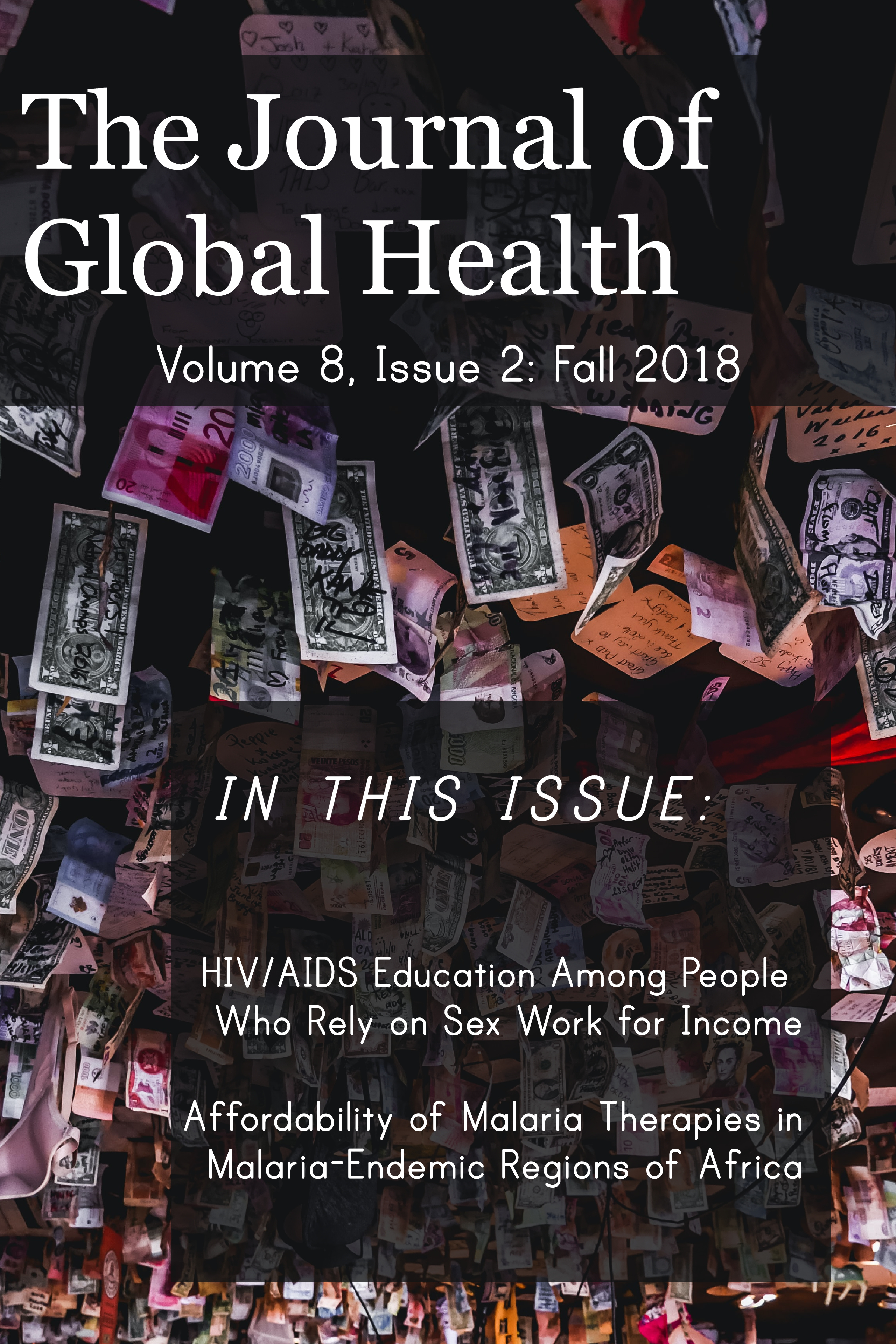“Even an HIV-infected person can live 100 years”: Perceptions of HIV among Hijras in Mysore, India
Main Article Content
Abstract
Hijras, a term referring to a “third gender” in India, engage in sex work with men for economic survival.1. This has contributed to the high rates of HIV/ AIDS within this population.1 The current study explores HIV/ AIDS knowledge and perceptions of HIV/ AIDS among Hijras residing in Mysore, India. A total of 14 Hijras participated in focus groups that asked questions probing for common beliefs about HIV acquisition and management, and basic knowledge about HIV/ AIDS acquisition and transmission. Most participants noted that they had received or were able to access HIV/ AIDS education programming. However, accurate HIV knowledge levels varied and HIV itself was not viewed as a significant health concern. Instead, distrust for healthcare workers was a greater concern for putting participants risk for HIV acquisition.
Article Details

This work is licensed under a Creative Commons Attribution 4.0 International License.

